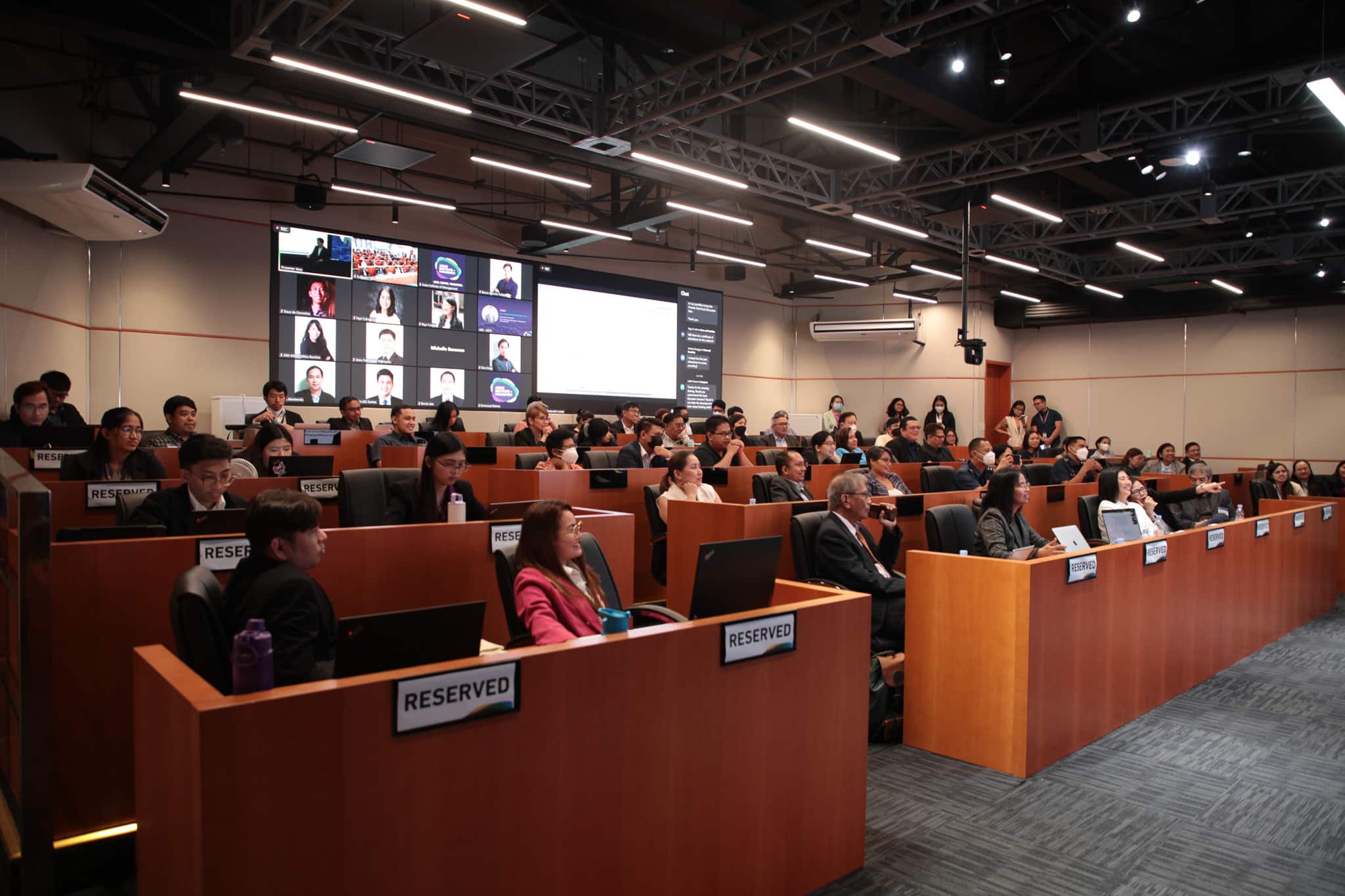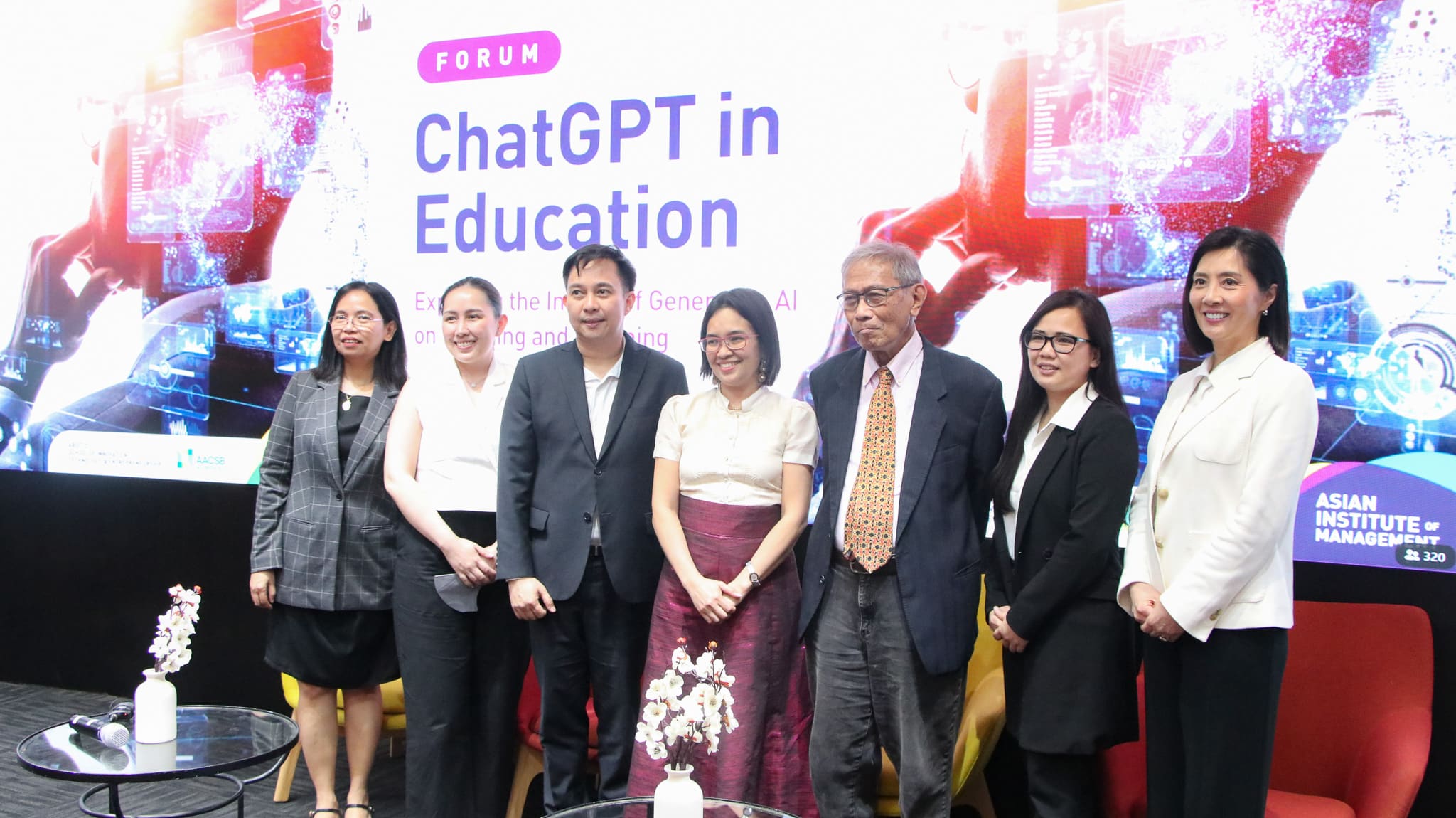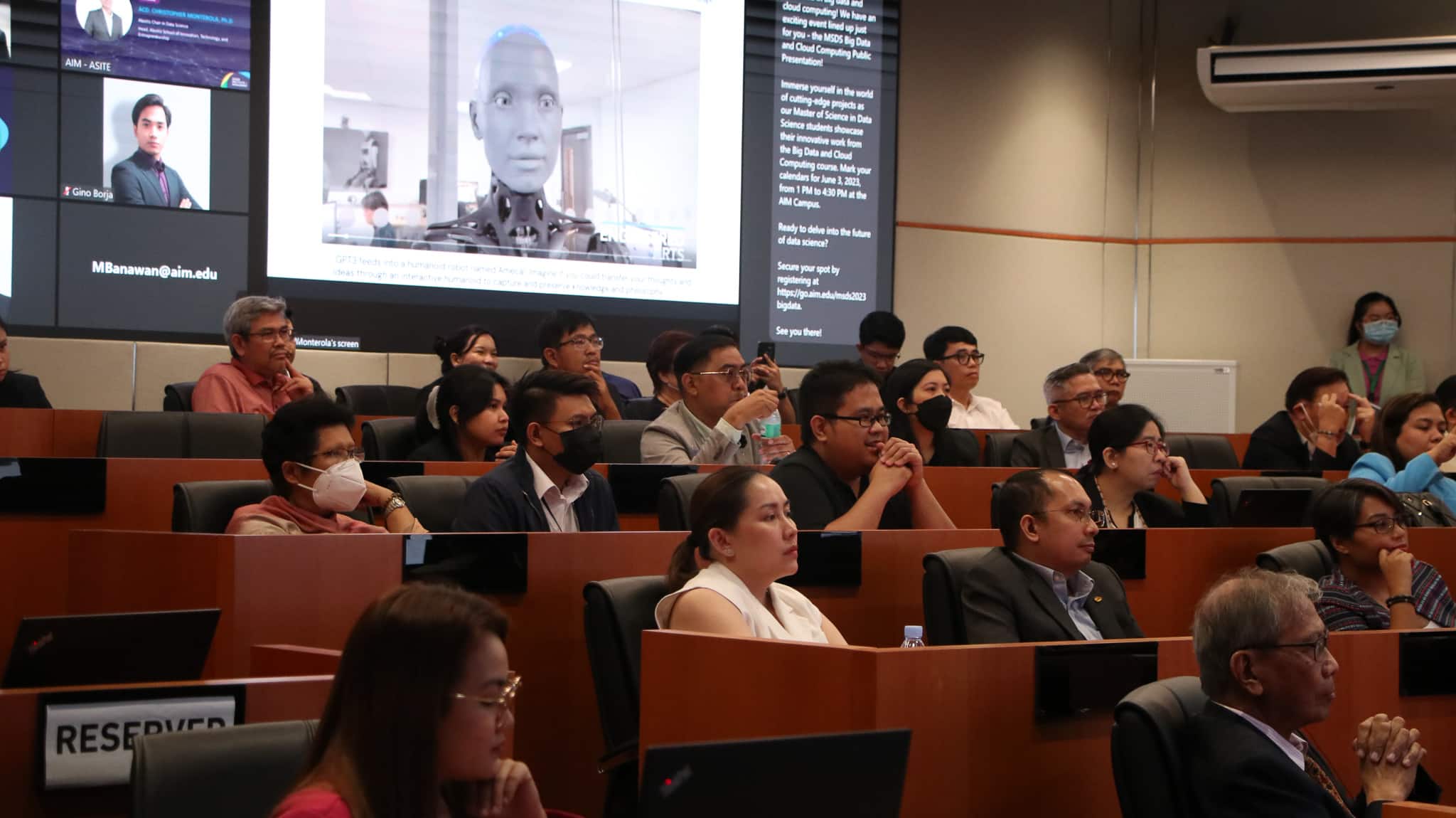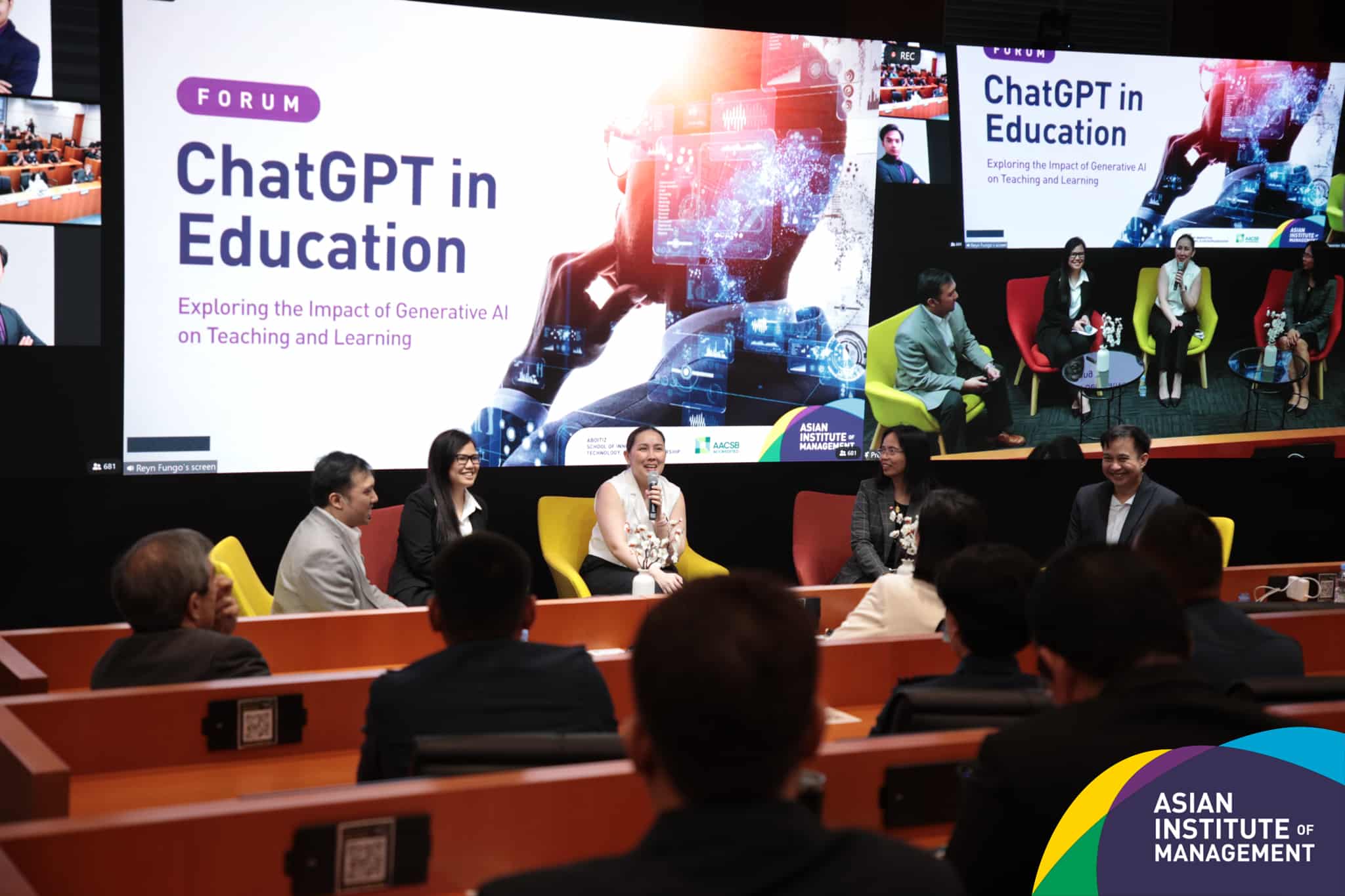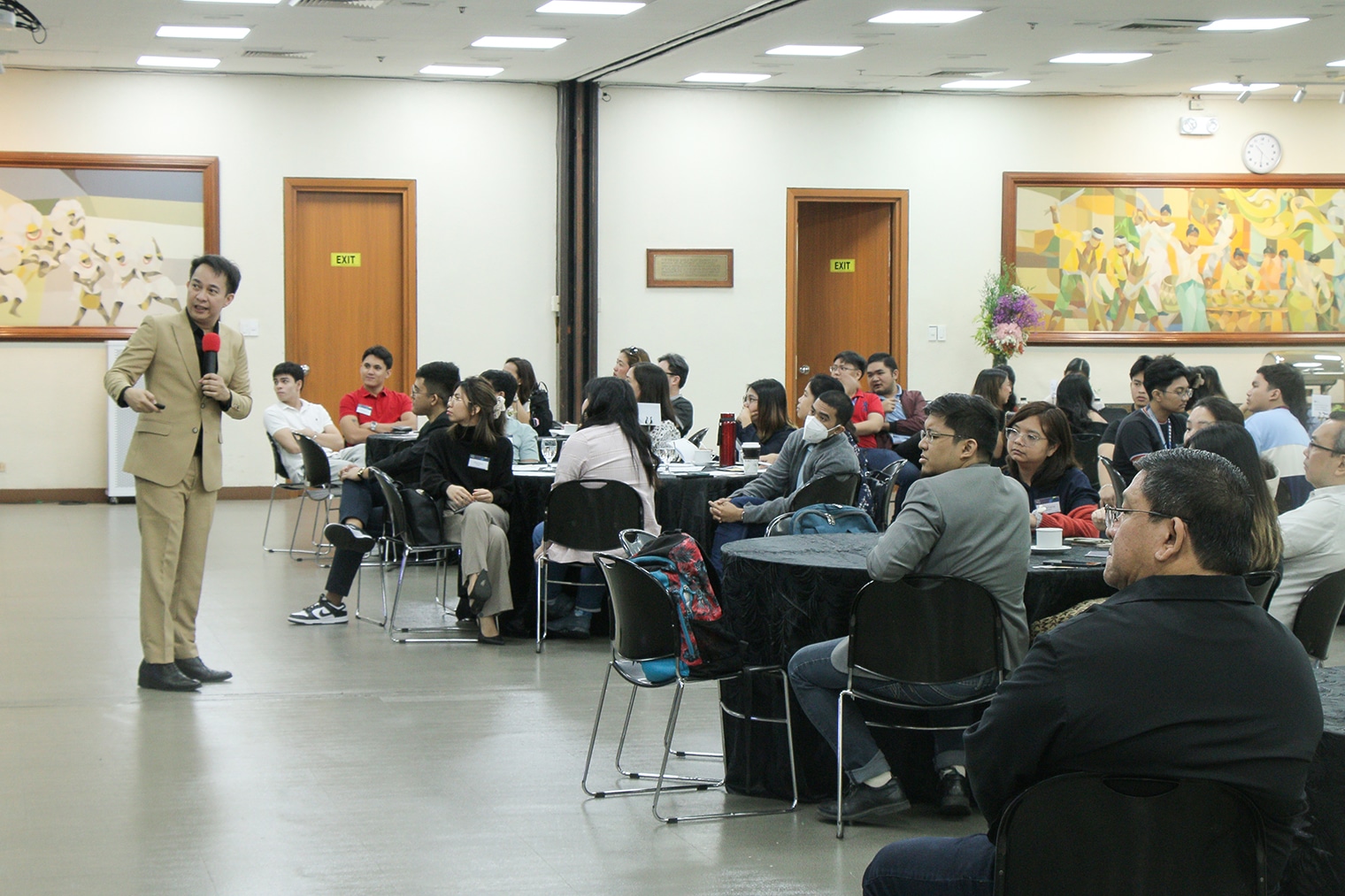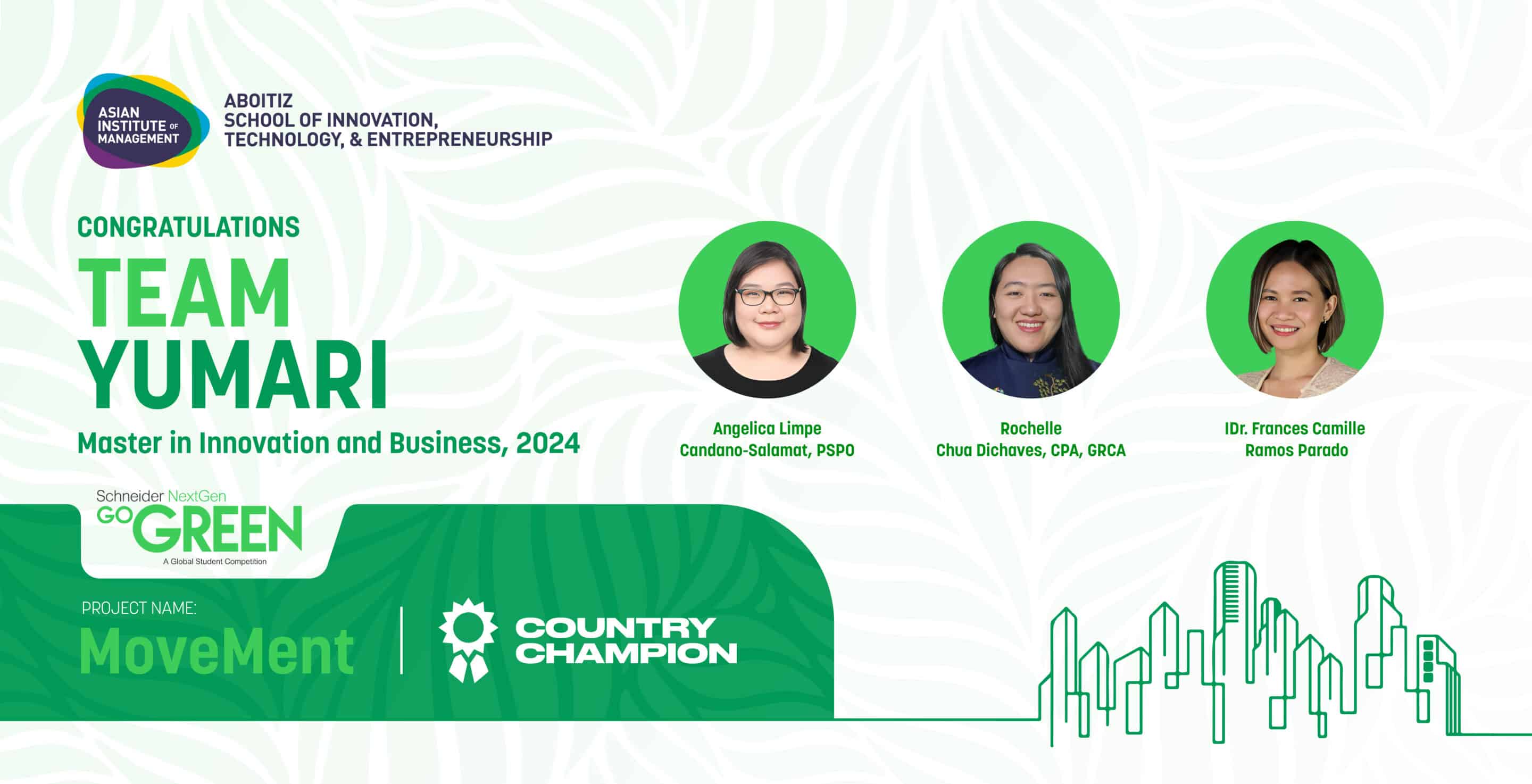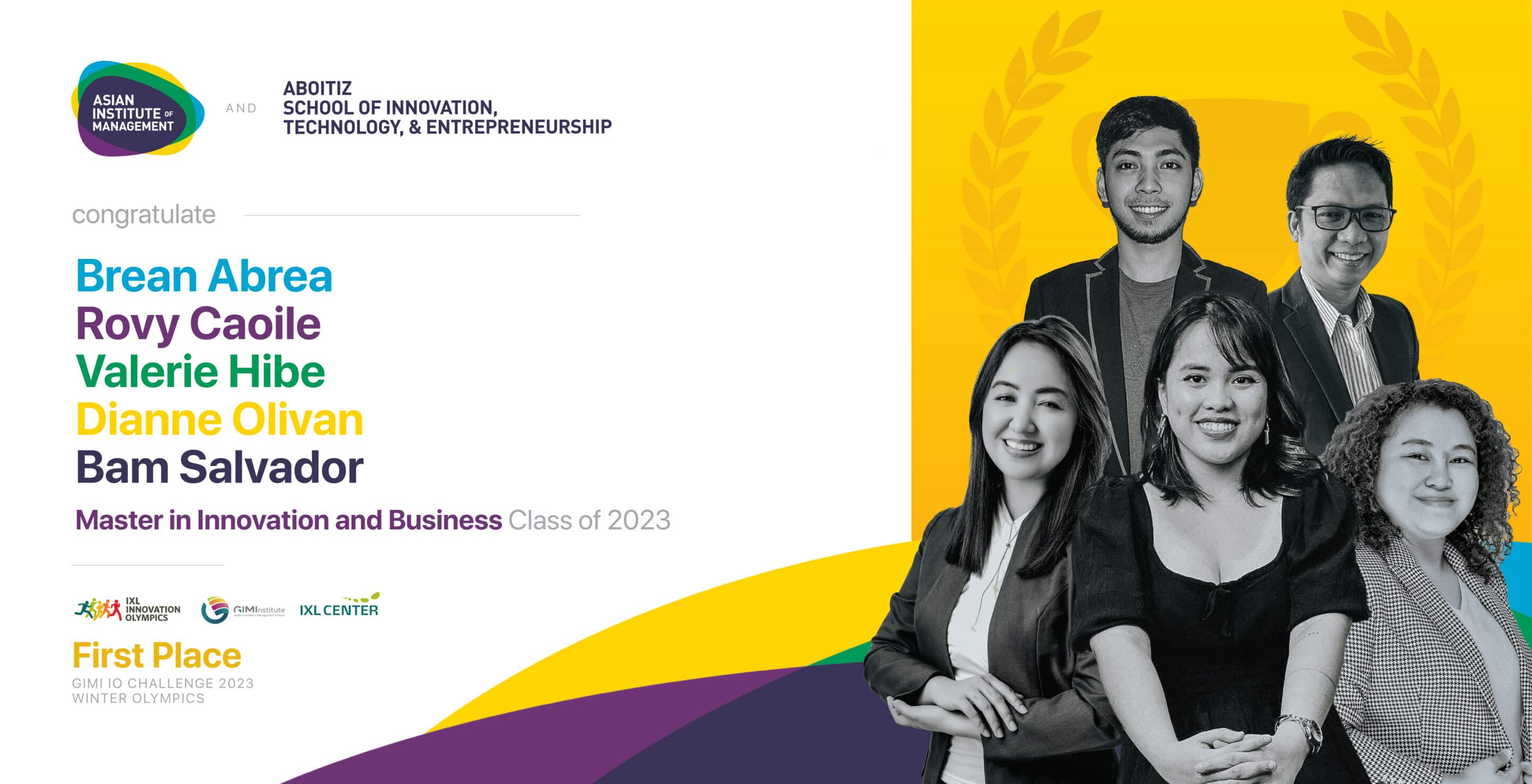On 1 June 2023, the Asian Institute of Management’s (AIM) faculty from the Aboitiz School of Innovation, Technology, & Entrepreneurship (ASITE) conducted a deep dive discussion on the topic of Generative Artificial Intelligence (AI) and its impact on education. Held at the Aboitiz Tech Space, this two-and-a-half-hour discussion explored themes such as the ethics of using AI in school, the potential impact of AI in the education space, and the inner workings of large language models (LLM) as used by ChatGPT to great effect.
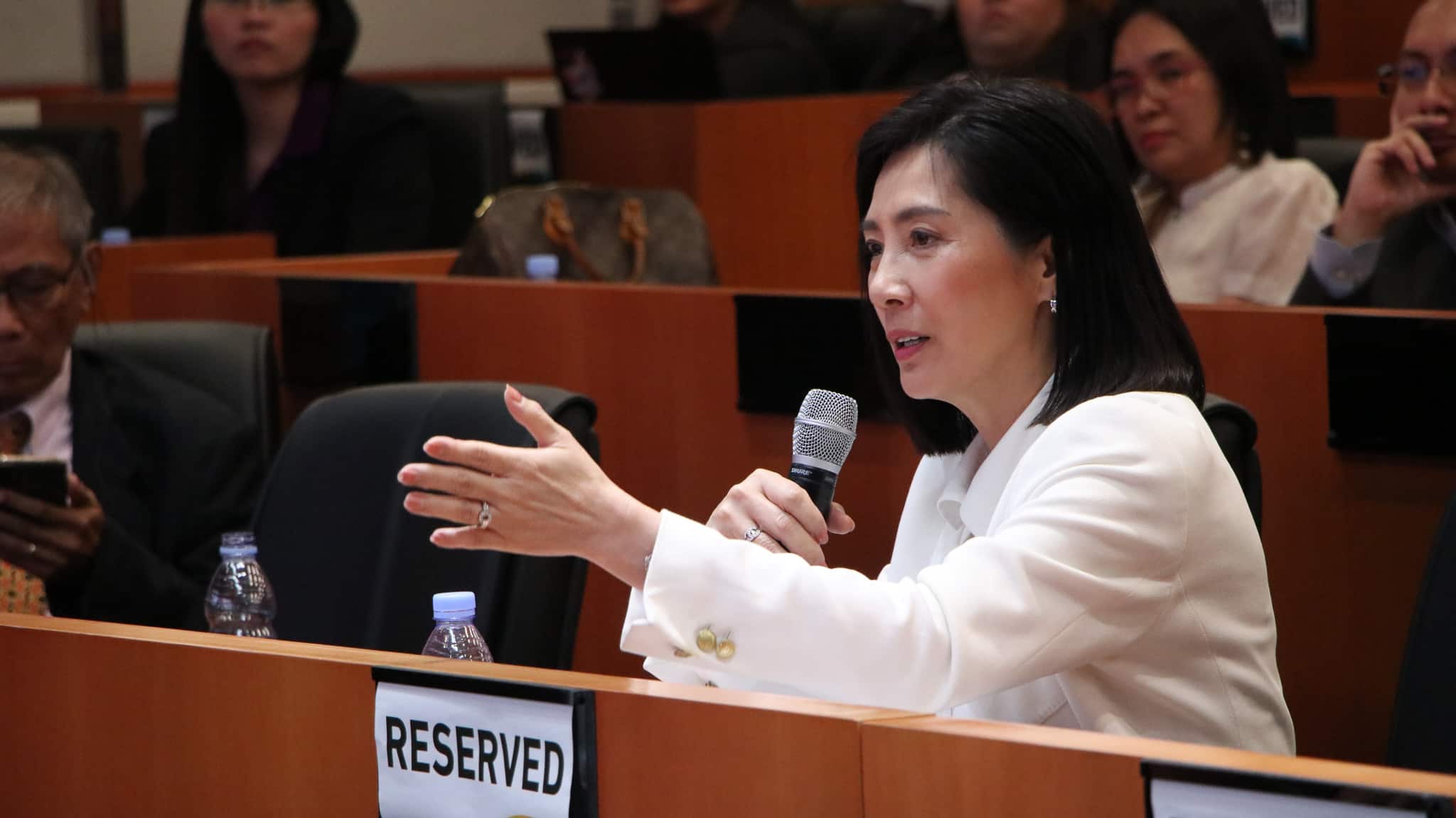
AIM President and Dean, Dr. Jikyeong Kang prefaced the discussion with questions on the accuracy and reliability of the information, data privacy protection, and fostering “human agency, responsibility, accountability, in the face of this powerful technology”.
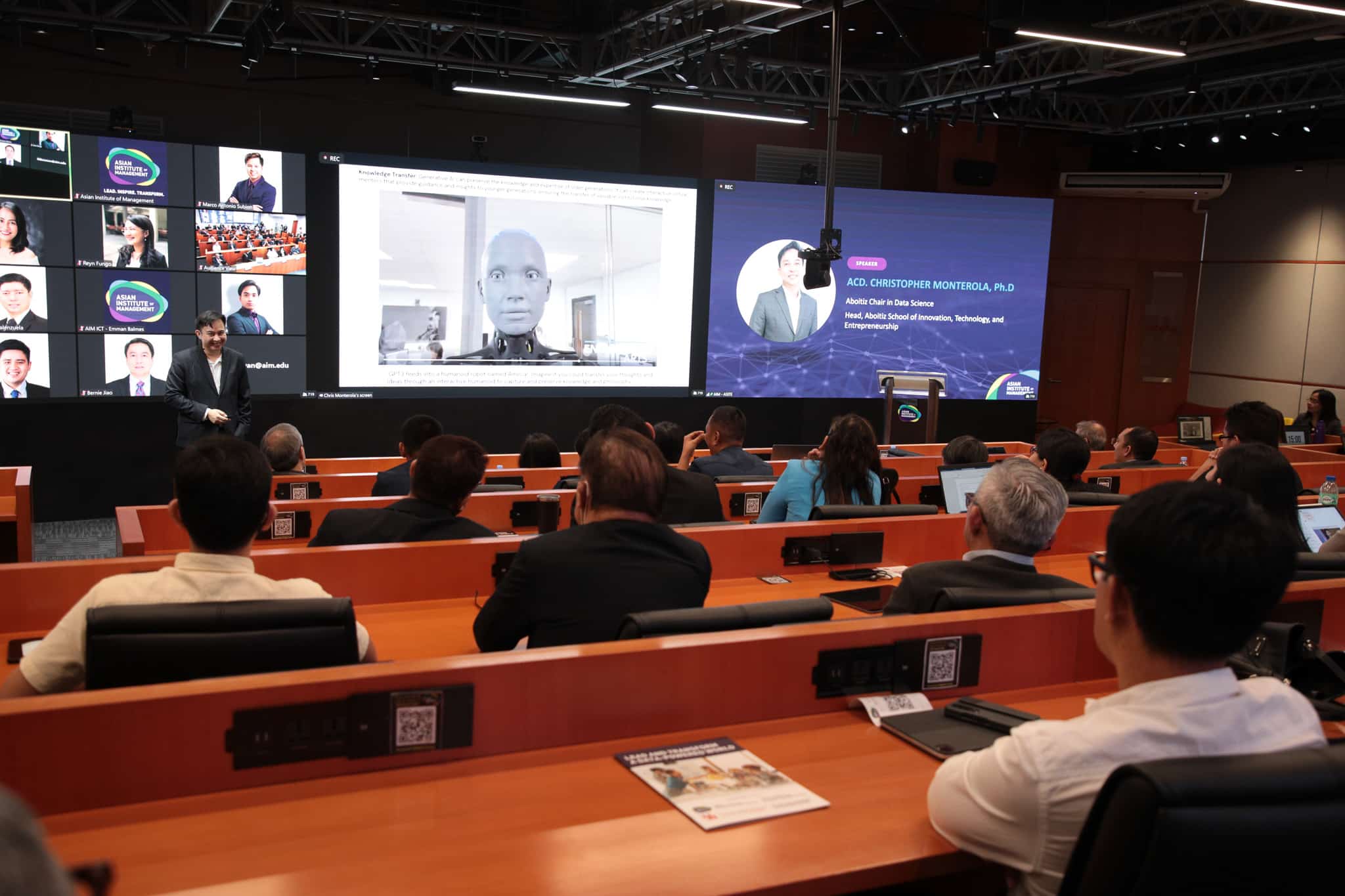
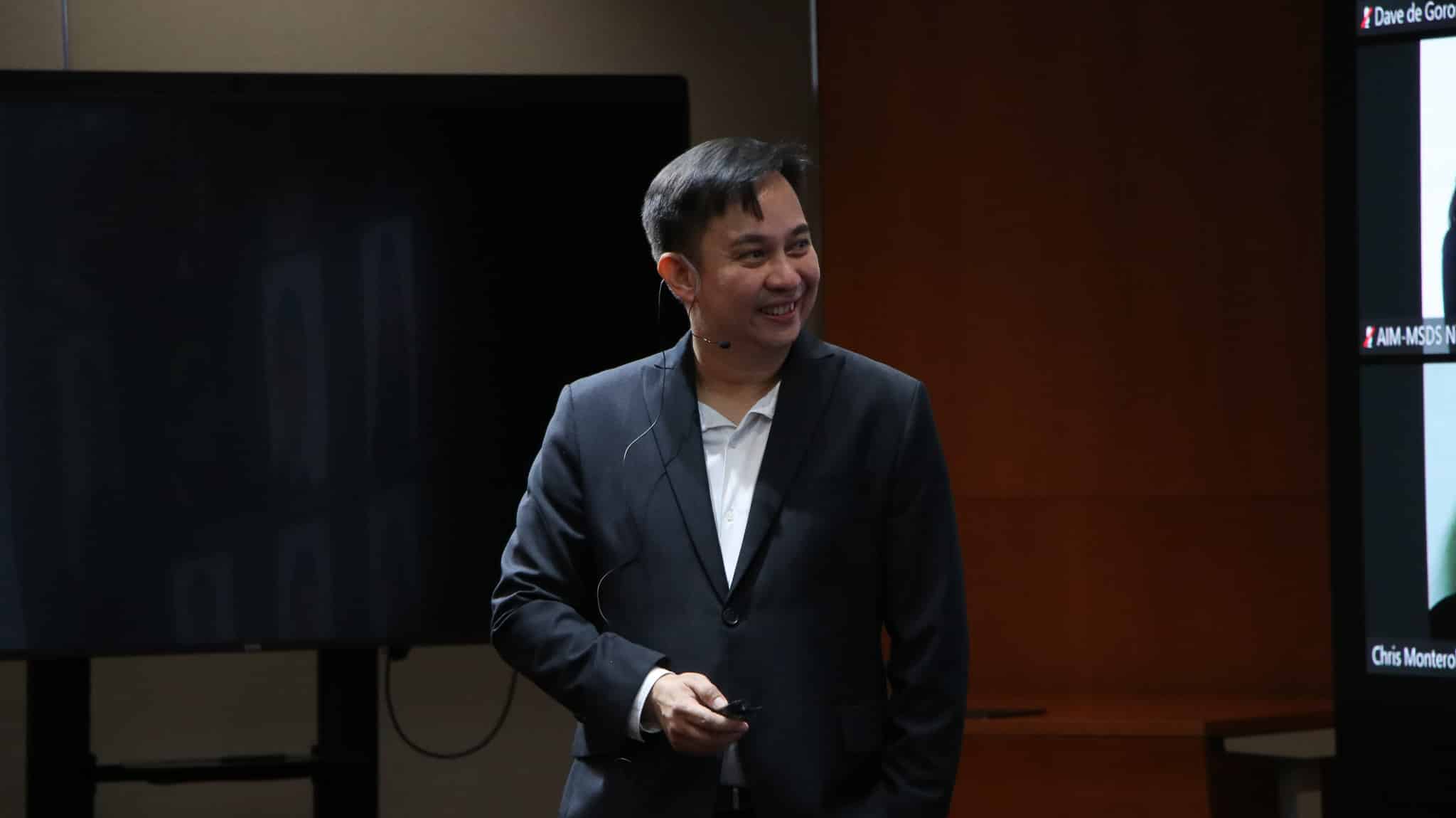
ASITE School Head, Professor Christopher Monterola PhD, was bullish on AI, demonstrating the capabilities of ChatGPT and its uses in a learning environment. From creating video scripts and physics tests, to formulating judging rubrics for a hypothetical storytelling competition, the AI performed efficiently, even speaking in Filipino when prompted. Prof. Monterola stressed that AI does have its trade-offs such as the balance between having more data versus privacy, the biases of the data it was trained on, and operation of such learning models which can go beyond human intuition. Nevertheless, Prof. Monterola emphasized that at the center of disruptive technology is AI and that one needs to be well-versed in this adaptive technology to be future-fit.
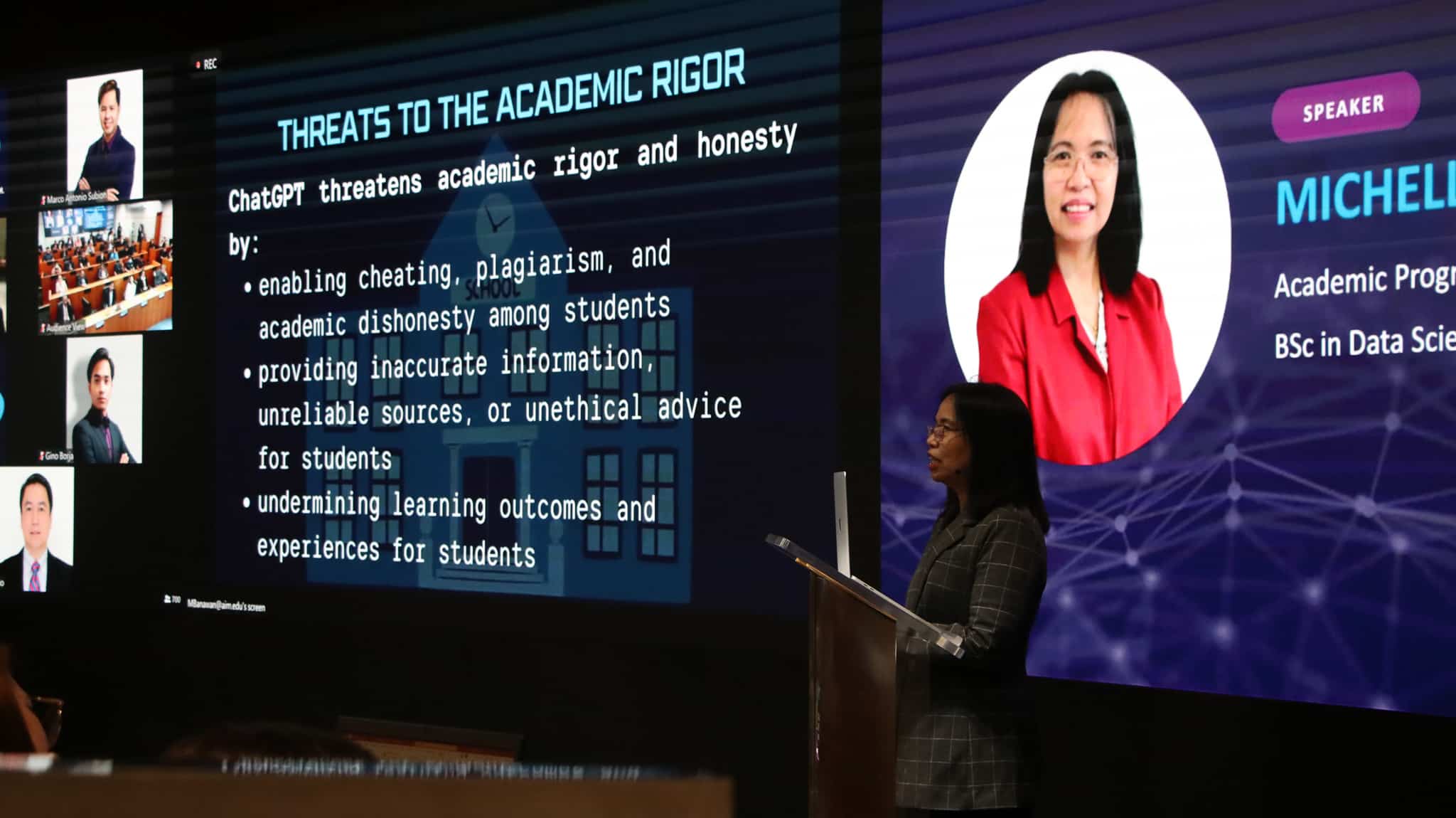
On the other hand, Academic Program Director of the Bachelor of Science in Data Science and Business Administration (BSDSBA) program, Professor Michelle Banawan PhD, took a more conservative approach. She explained that AI and LLMs are powerful tools that should be adapted for our requirements; however, she cautioned that they could also be utilized for malicious purposes such as malware creation and the generation of phishing emails and fake news, not to mention their capacity to amplify biases in training data as well as challenge the boundaries of human identity and agency.

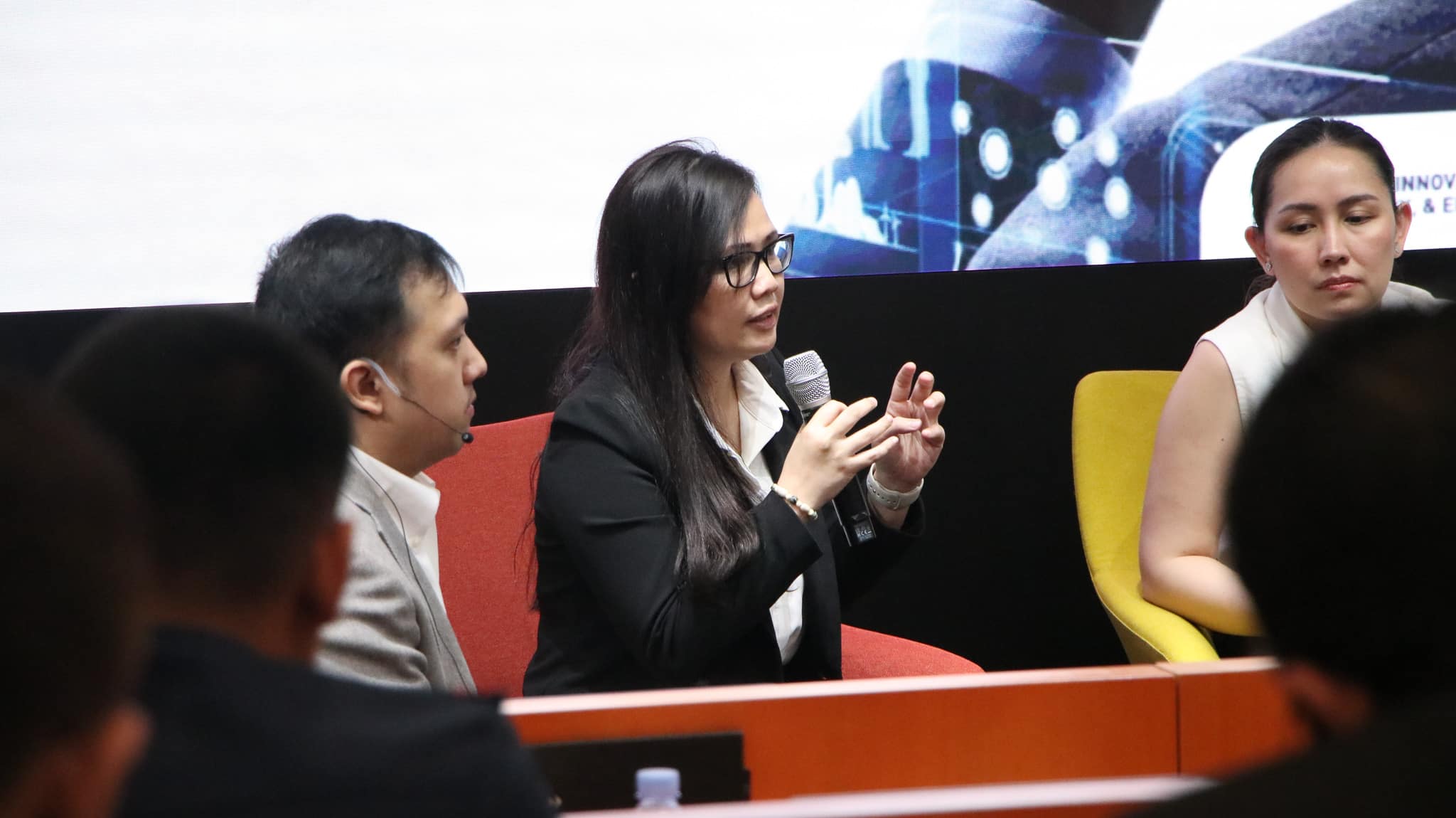
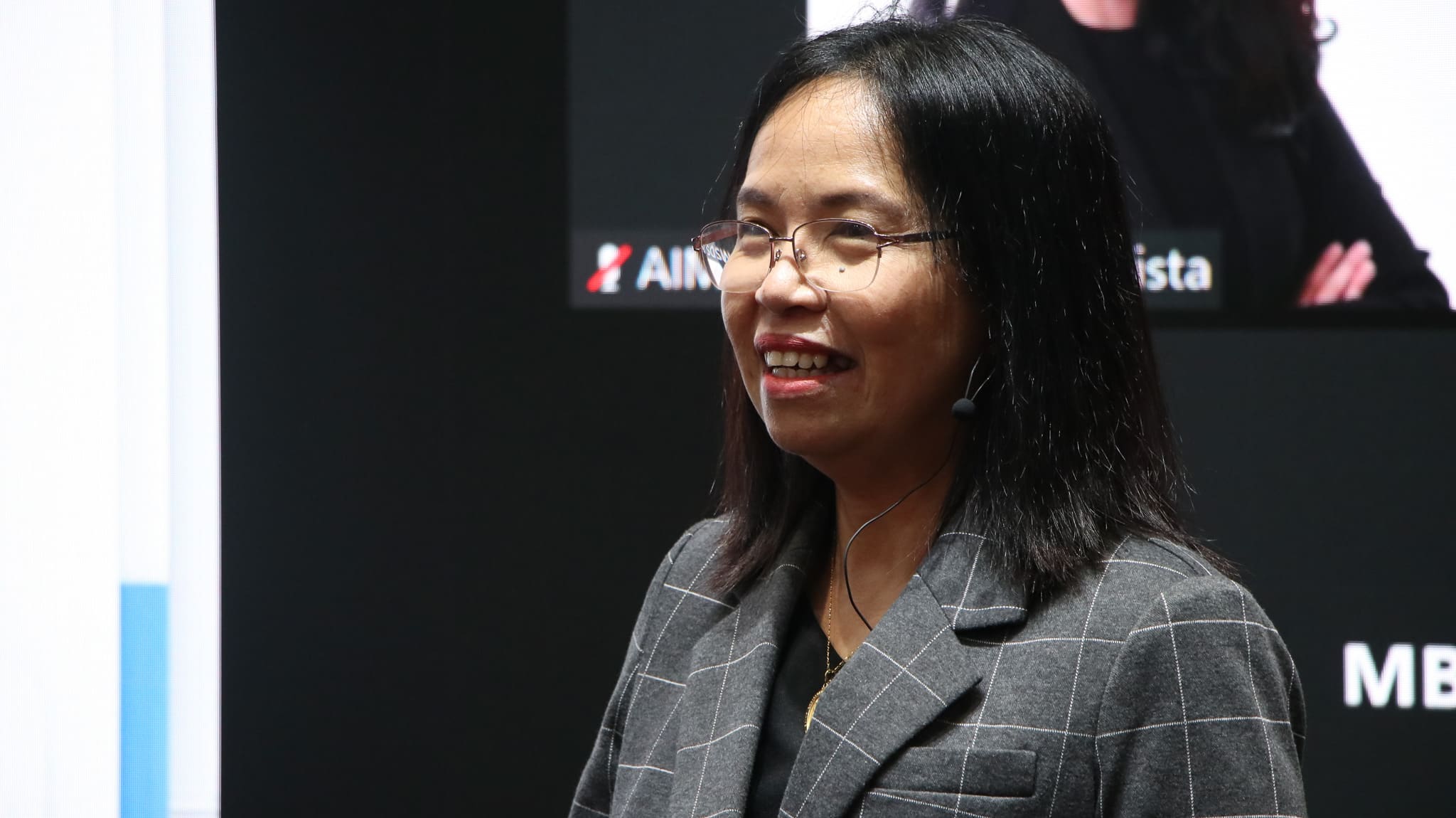
A panel composed of Chief Operations Officer and incoming Chief Executive Officer of Teach for the Philippines, Ms. Mavie Ungco, the Aboitiz Chair in Data Science and the Academic Program Director of the Master of Science in Data Science (MSDS) program, Professor Erika Legara, as well as Professors Monterola and Banawan discussed their own experiences with AI and fielded questions from the event attendees.
With this disruptive technology getting better day-by-day, the audience expressed concerns about the reliability and accuracy of the information generated by AI and LLMs, the ethics of AI use in the academic sphere, and whether educators would be replaced by this technology.
Executive Director of the Commission on Higher Education (CHED), Attorney Atty. Cinderella Benitez-Jaro, shared an instance where a lawyer filed a pleading in Court using ChatGPT. In her retelling, it was eventually discovered by the presiding judge that the citations of the lawyer’s jurisprudence which were generated using AI were non-existent, lending credence to the audience’s concerns. Dr. Kang also recounted a story of a student who told his professor that he wasn’t able to complete an examination because wifi was slow thereby limiting his access to ChatGPT.
In response, Prof. Legara’s perspective on the matter was particularly noteworthy as she explained that she encourages the use of ChatGPT in her class, although she ensures that her students are fully aware of the limitations of LLMs. “It must be clear that everything here is probability, that LLMs are really all about patterns, not so much about facts”. If you use ChatGPT, you have to be accountable with the output knowing that it’s not necessarily factual”. When asked if AI will eventually replace educators, Prof. Legara explained that “Not everyone has the capacity to actually teach themselves. If you go to remote areas and you gave them ChatGPT, they will still need teachers, they will still need people who will instruct them”. She further explains that she believes that AI will not necessarily eliminate jobs, but rather tasks within those jobs.
Professor Banawan added that as with most technologies, AI exists in a grey area where it can also be used to the benefit of educators. According to her, LLMs “extract the frequency of the words and group of words”, and “extracts patterns of co-occurrence between these words”. These can provide applications in teaching and learning such as providing instant feedback, personalized support, and adaptive learning for students. Meanwhile teachers can also benefit through a reduced workload, increase student engagement, and foster collaboration and creativity through a conversational interface.
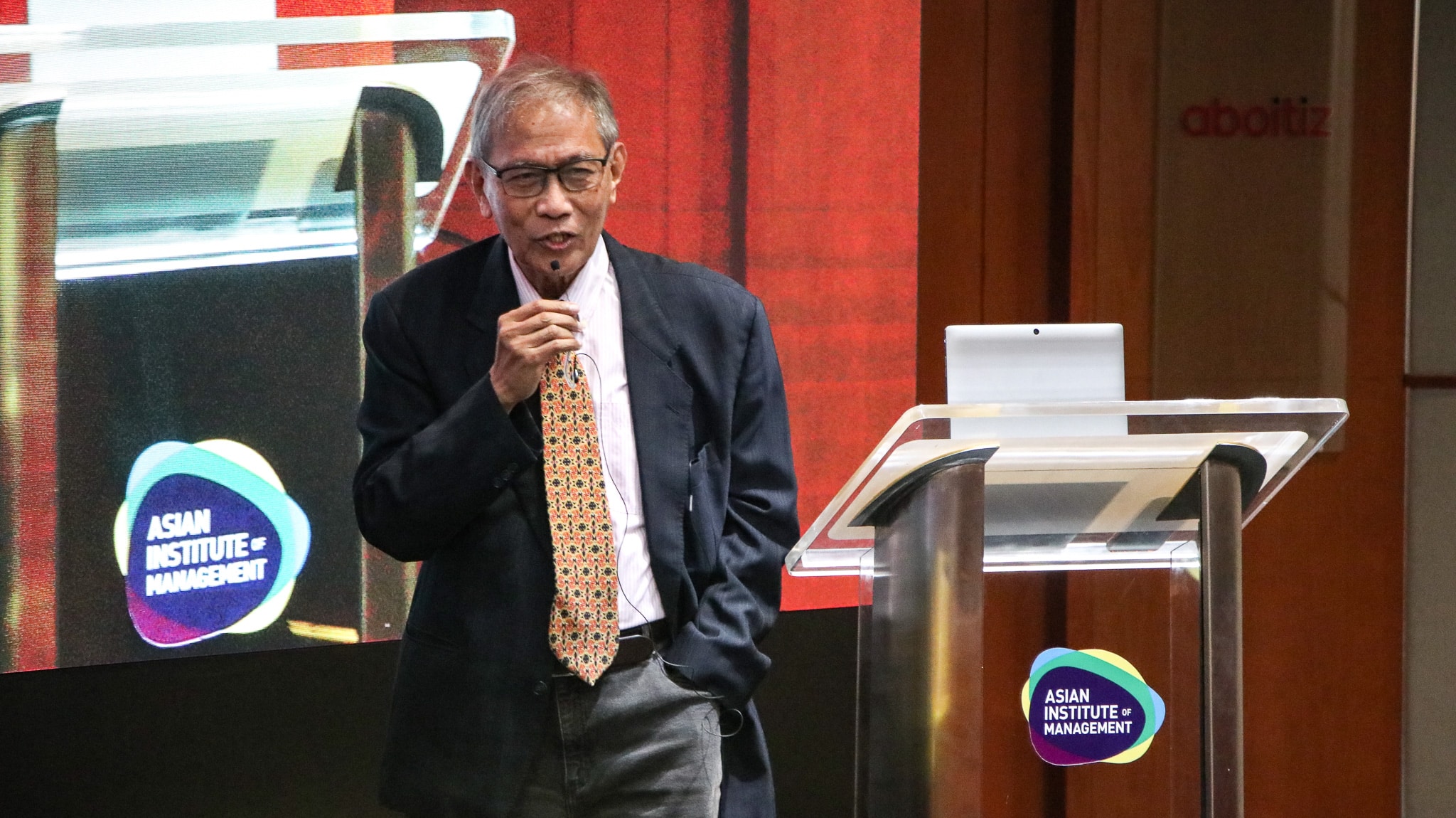
National Scientist from the National Academy of Science and Technology (NAST), Dr. Raul Fabella, engaged the audience by comparing LLMs with the concept of the Wisdom of the Crowd, which stipulates that decentralized information can be distilled to have a certain value. Dr. Fabella drew similarities between the data sets used by LLMs to a crowd gathering information to reach a certain verdict. On a rather intriguing note, Dr. Fabella also posed the question of whether these LLMs are approaching sentience as they are observed to have feedback loops in their processes that may produce true artificial intelligence.
Over 750 participants attended the event online and onsite, making it one of the biggest conferences AIM has recently held.
